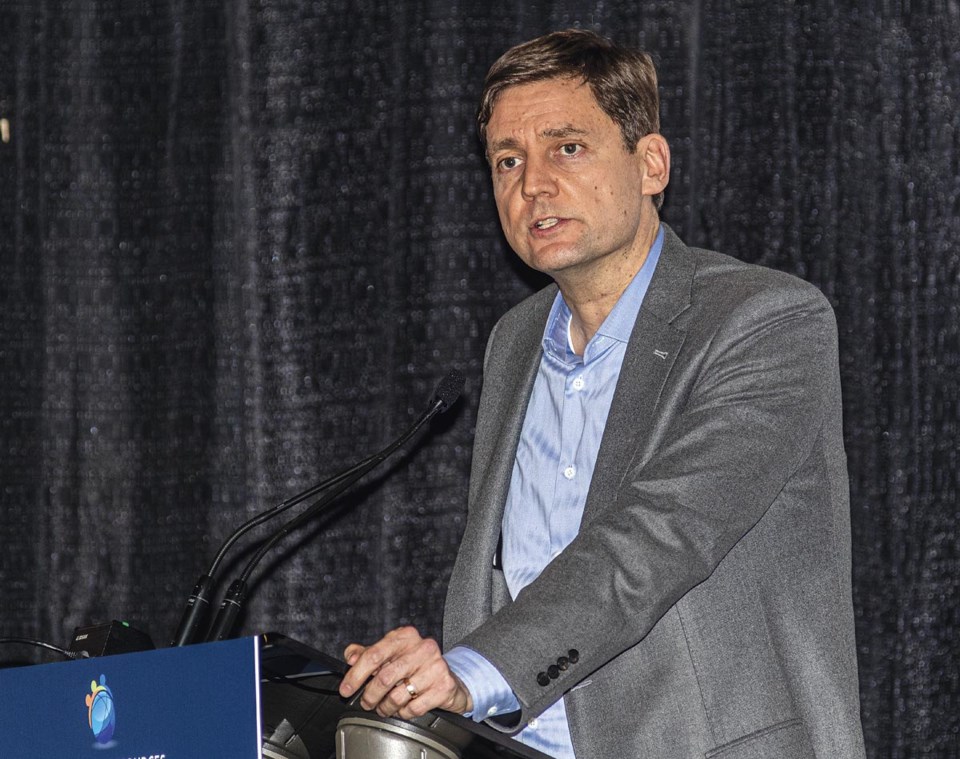If your drink of choice involves an alcohol product made in certain U.S. states, it's going to be harder to find in Prince George.
Premier David Eby announced Saturday, Feb. 1 that he's implementing a ban on alcohol products made in Republican U.S. states. He called it a reaction to U.S. President Donald Trump's new 25 per cent tariff on Canadian goods.
At a press conference, Eby called the tariffs a “betrayal” of the historic relationship between the two countries.
"President Trump's tariffs are a declaration of economic war against a trusted ally," said Premier Eby. "We stand united, and we will not back down. British Columbia will fiercely protect its workers and businesses."
Eby announced several immediate measures:
- The BC Liquor Distribution Branch will immediately halt purchases of American liquor from "red states," with top-selling brands from those states removed from public liquor store shelves.
- The provincial government and Crown corporations will prioritize purchasing Canadian goods and services.
- The government is expediting approval for private-sector projects worth $20 billion, which are expected to create 6,000 jobs, primarily in remote and rural communities.
Eby also confirmed that the province is collaborating with the federal government and is considering additional actions in the coming weeks to further safeguard British Columbia's economy.
“We will not be bullied into submission," Eby said. "British Columbians are united in our resolve, and we will never stop standing up for our province and our country."
The measures were announced just before Prime Minister Justin Trudeau announced a 25 per cent tariff on $155 billion worth of U.S. goods coming into Canada. He said Saturday night that more details on which products will be affected will be available Sunday.
The B.C. government has already assessed the potential impact of the tariffs, according to a press release from the province.
- In 2023, 54 per cent of BC exports were sent to the United States.
- Key BC. exports include wood, pulp and paper, metallic minerals and energy products, which together account for 67 per cent of total goods exports.
- Top U.S. destinations for BC exports include Washington ($9.8 billion), California ($3.2 billion), Illinois ($2.1 billion), Texas ($1.5 billion) and Oregon ($1.3 billion).
A preliminary analysis released in January 2025 estimates the tariffs could cost B.C. up to $69 billion in economic activity and result in the loss of more than 120,000 jobs by 2028.
The 25 per cent tariff on Canadian minerals alone is expected to cost U.S. companies more than $11 billion, with significant implications for American defense, energy, and manufacturing industries.
In response to the crisis, the BC. government has outlined a three-pronged strategy to combat the tariffs:
- Counter-actions: Enforce tough responses to the U.S. tariffs and engage with American decision-makers.
- Strengthening the Economy: Fast-track project approvals and support local industries and workers.
- Diversifying Trade: Reduce dependency on U.S. markets by exploring new global trade opportunities.
Eby has also formed a Trade and Economic Security Task Force, which brings together leaders from business, labour and Indigenous communities. The task force will be co-chaired by Tamara Vrooman (Vancouver International Airport), Jonathan Price (Teck), and Bridgitte Anderson (Greater Vancouver Board of Trade).
A new cabinet committee has been created to function as a "war room," coordinating the government's response to the ongoing trade challenge, Eby said.



